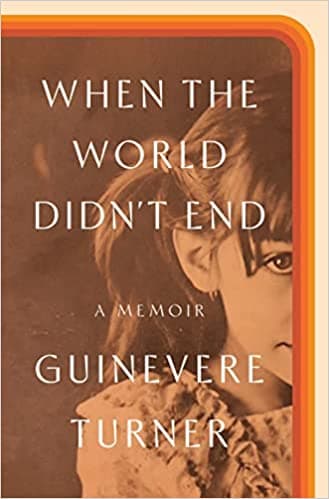
Book Review Summary: When the World Didn't End: A Memoir
Introduction
In "When the World Didn't End: A Memoir," Guinevere Turner shares her harrowing childhood experience growing up in the Lyman Family cult. This spellbinding memoir delves into the complexities of leaving a cult and the emotional turmoil that comes with it. Turner's story is a powerful exploration of childhood trauma and the struggle to find one's identity in a world that feels foreign and dangerous.
About Guinevere Turner
Guinevere Turner, the author of "When the World Didn't End: A Memoir," is an acclaimed screenwriter and filmmaker. Her work has been recognized for its unique blend of wit, intelligence, and emotional depth. Turner's memoir offers a glimpse into her personal journey, shedding light on the challenges she faced and the resilience that allowed her to overcome them.
Analysis of Views
-
Childhood Trauma: Many readers found the book deeply moving and emotionally impactful, particularly due to the childhood trauma experienced by the author. The memoir touches on themes of abuse, neglect, and the struggle to find a sense of safety and belonging in a dysfunctional family.
-
Cult Dynamics: While some readers were intrigued by the cult aspect of the story, others felt that the focus on the Lyman Family was not as prominent as they expected. The book delves more into the author's personal experiences within the cult and her transition to a new life outside of it.
-
Authenticity: The inclusion of diary entries from Turner's childhood added an authentic and intimate touch to the memoir. Readers appreciated the raw and honest portrayal of her experiences, which made the story feel more real and relatable.
-
Transition to Adulthood: The book covers Turner's journey from a childhood within the cult to her transition into adulthood. Readers found this aspect of the memoir particularly engaging, as it highlights the challenges faced by individuals trying to navigate a world they have been removed from.
-
Emotional Depth: Many readers praised Turner's ability to convey complex emotions and explore themes of identity, loss, and self-discovery. The memoir delves into the psychological aspects of trauma and how it shapes one's perception of life and relationships.
Reasons for Recommendation
-
Honest Portrayal: Readers recommend "When the World Didn't End: A Memoir" for its honest portrayal of childhood trauma and its impact on one's life. The memoir provides a raw and emotionally resonant exploration of the author's experiences, making it a powerful read for those who appreciate authentic storytelling.
-
Insight into Cult Dynamics: While some readers were disappointed by the lack of focus on the cult itself, others appreciated the insights gained from Turner's personal perspective. The memoir offers a unique perspective on what it means to grow up within a cult and how it shapes one's understanding of the world.
-
Engaging Narrative: The memoir is praised for its engaging narrative structure, which keeps readers invested in Turner's journey. From her experiences within the cult to her struggles in navigating a new life, Turner's story is both captivating and thought-provoking.
Reasons for Not Recommendation
-
Lack of Focus on Cult: Some readers felt that the memoir was not as focused on the Lyman Family cult as they had hoped. They found themselves wanting more information about the cult itself and its dynamics, rather than solely focusing on Turner's personal experiences within it.
-
Repetitive Content: A few readers found certain parts of the memoir repetitive, particularly when it came to describing the daily routines and chores within the cult. They felt that some sections dragged on and could have been condensed or presented in a more concise manner.
Conclusion
"When the World Didn't End: A Memoir" by Guinevere Turner is a powerful and emotionally resonant exploration of childhood trauma and resilience. Through her personal experiences within a cult, Turner sheds light on themes of identity, loss, and self-discovery. While some readers found certain aspects lacking or repetitive, overall, the memoir is recommended for its honest portrayal of trauma and its ability to engage readers with its compelling narrative.